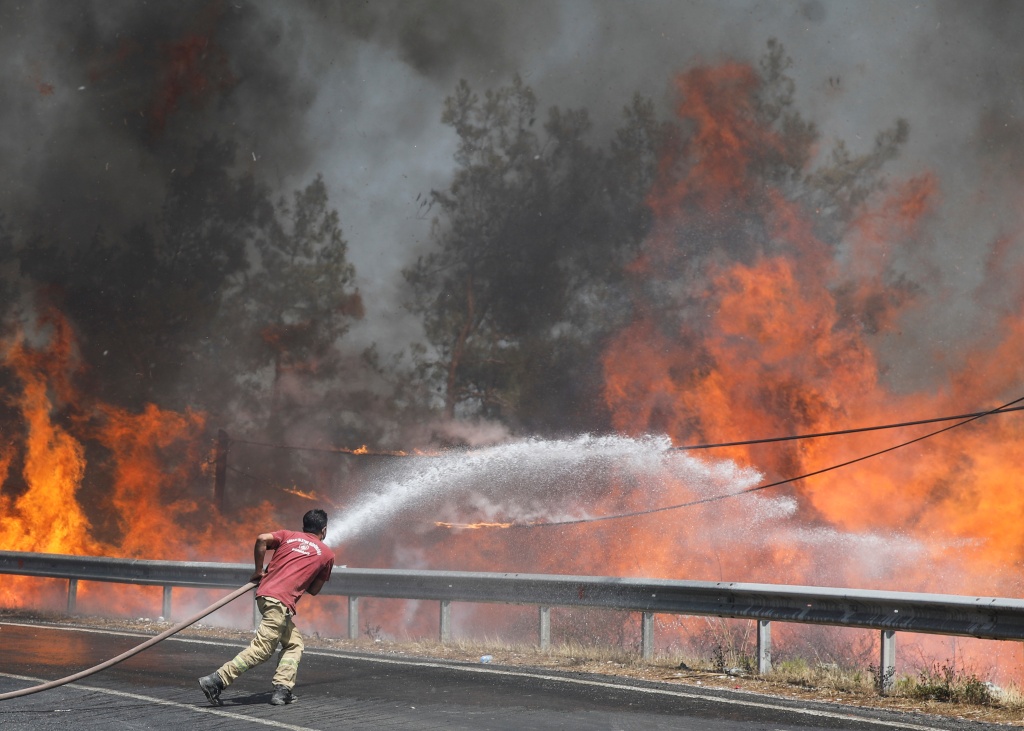
By Anders Lorenzen
In a summer dominated by extreme weather events, Turkey has become the latest country to feel the force of nature, as wildfires on the country’s south eastern coast are burning on their tenth day. The wildfires have so far killed 8 people with thousands of people evacuated.
The wildfires started last week with more than 70 separate fires. On Monday seven were still burning helped by temperatures above 40 degrees C, strong winds and low humidity.
Many tourists have had to be evacuated as the wildfires continued to rage near the drought-hit southern resorts.
Some of the images captured by news agencies include flames engulfing trees on a hillside near the coastal resort of Marmaris, and drone footage showed a grey landscape nearby with smouldering buildings and blackened tree trunks.
Three times as many fires as usual
The heatwave which was exacerbating the fires, comes after months of drier than normal weather in Turkey’s southwest. Data from the European Forest Fire Information Service showed there has been three times as many fires as usual this year. This has resulted in the burning of 136,000 hectares, almost three times as much as during an entire average year..
Locals have taken an active role in trying to put out the flames carrying water containers up a hill to fight a fire. They said the government was not doing enough to help them, while 16 planes and 51 helicopters tackled the blazes across a swathe of southwest Turkey.
In addition, the European Union (EU) said it had helped mobilise three fire-fighting planes, one from Croatia and two from Spain, joining teams from Russia, Iran, Ukraine and Azerbaijan.
The economic cost to farmers and the tourist industry is not yet known but will be a devastating blow to a country just starting to bounce back from the COVID-19 pandemic.
A perfect recipe for wildfires
Climate scientists have long predicted that the Mediterranean will be hit hard by rising temperatures and changes in rainfall, driven by human emissions. Future wildfire risk is projected to increase in southern Europe, according to the last report by the UN Intergovernmental Panel on Climate Change (IPCC). May 2021 was the hottest May for over 50 years and followed a drought in Turkey, creating the perfect conditions for wildfires.
Renewable energy has had a slow uptake in Turkey which mainly depends on fossil fuels for their primary energy needs. Turkey’s updated Nationally Determined Contributions (NDCs) target that all countries are to submit ahead of COP26 have been deemed critically insufficient by the Climate Action Tracker and the country has yet to ratify the Paris Agreement. Campaigners will be hoping that the latest round of climate-fuelled extreme weather will make the country increase its climate ambition.
Categories: climate change, impacts, Mediterranean, Weather
7 replies »